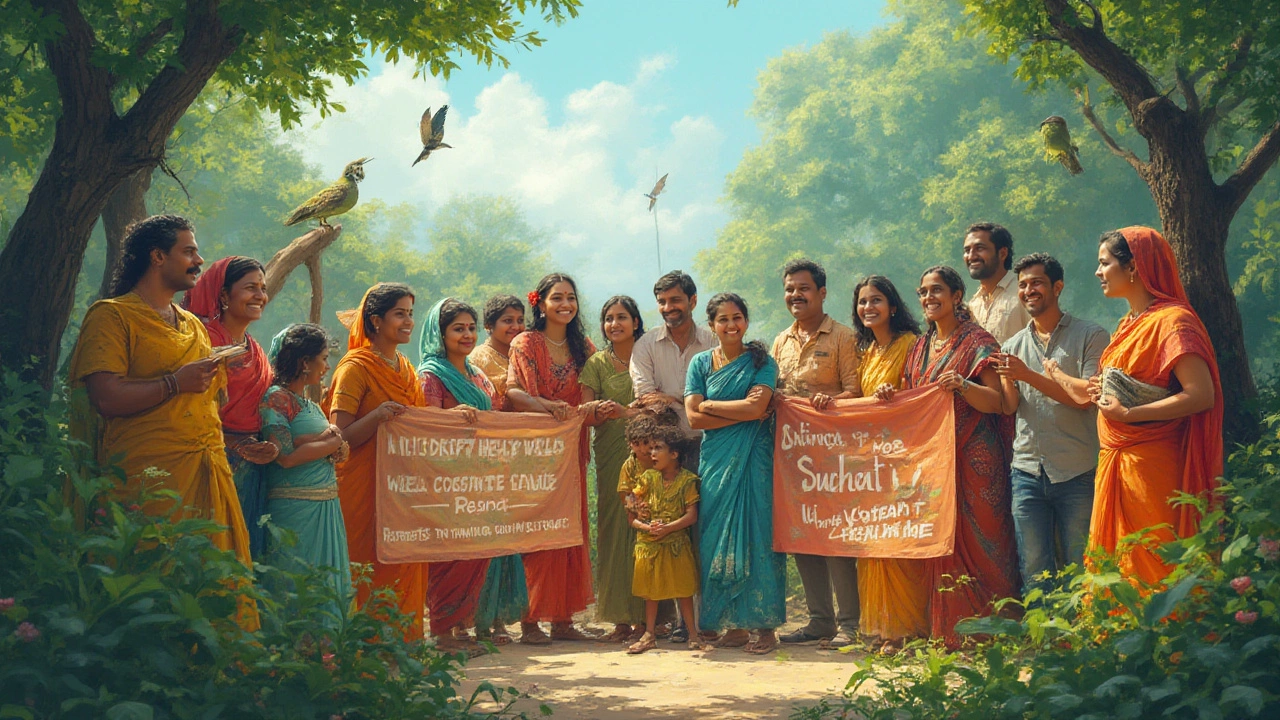Environmental Policy: Simple Steps for a Greener Community
When you hear "environmental policy" you might picture big laws or complicated reports. In reality, it’s about everyday choices that add up. Whether you’re part of a church group in Varanasi or just a neighbor who cares, the right actions can make a real difference.
First off, think of policy as a roadmap. It tells us where we’re heading – cleaner air, safer water, healthier neighborhoods. The roadmap works best when we, the community, help fill in the details. That’s why local groups, schools, and volunteers are essential pieces of the puzzle.
Why Environmental Policy Matters Right Now
Our city’s air quality has slipped in recent years, and the Ganges river faces pollution challenges. Policies that push for waste reduction, renewable energy, and better recycling can turn those trends around. When a policy is backed by real people on the ground, it moves faster and sticks longer.
Take the example of a small parish that decided to cut single‑use plastics at its events. Within a month, the weekly coffee hour used 70% less waste. That single change fed into a larger diocesan push for greener practices, showing how local actions ripple up to influence broader policy.
How You Can Get Involved Today
Start with a quick audit of your own habits. Do you know how much water you waste each day? How many plastic bottles you toss? Write down three things you can cut or replace – a reusable bottle, a short shower, or a car‑share ride.
Next, join an existing effort. The Varanasi Diocese Community Network lists several volunteer projects that link directly to environmental goals, like river clean‑ups and tree‑planting days. Signing up gives you a chance to meet like‑minded people while contributing to tangible results.
If you’re looking for a cause to support financially, check out the post "Best Environmental Organizations to Support." It highlights groups that turn donations into clean‑energy projects, wildlife protection, and community education. Even a small contribution can fund a solar panel for a school or a water filtration system for a village.
Want to push policy forward? Write a short note to your local council or the diocesan board. Mention one clear suggestion – for example, installing bike racks at the community center. Keep it brief, state the benefit, and offer to help implement it. Decision‑makers appreciate concrete ideas backed by volunteers.
Finally, spread the word. Share a quick tip on social media, talk about your new habit at a family dinner, or host a mini‑workshop at your church hall. When information travels, more people join the effort, and the policy push gains momentum.
Remember, environmental policy isn’t just for politicians. It’s a shared responsibility that starts with small, everyday actions. By staying informed, volunteering, and supporting the right organizations, you become part of a larger movement that protects the planet for future generations.

Major Roles of Environmental Groups: How Activists Shape Conservation and Policy
- Jul, 7 2025
- 0
Why do environmental groups matter? Learn about the essential roles they play in policy, conservation, education, and action to defend our planet.
Categories
- Volunteering (40)
- Environment (38)
- Youth Programs (34)
- Charity Events (31)
- Homelessness (31)
- Community Outreach (28)
- Charitable Organizations (27)
- Community Support (18)
- Finance (14)
- Education (10)
Archives
- February 2026 (5)
- January 2026 (7)
- December 2025 (10)
- November 2025 (8)
- October 2025 (23)
- September 2025 (4)
- August 2025 (8)
- July 2025 (31)
- June 2025 (29)
- May 2025 (30)
- April 2025 (31)
- March 2025 (30)
- community outreach
- charity events
- after-school clubs
- community service
- charitable trust
- philanthropy
- volunteering
- homeless shelters
- environmental groups
- volunteer opportunities
- community engagement
- charitable giving
- estate planning
- mental health
- charity
- student engagement
- community help
- donations
- volunteer
- youth organizations